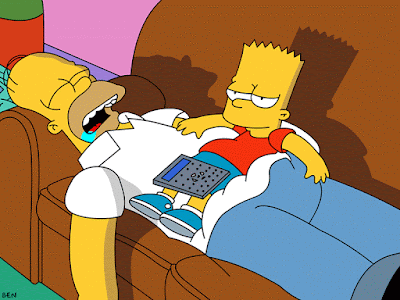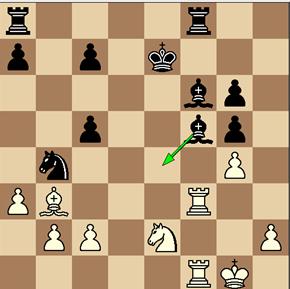Why is it that most average players don't have the discipline, patience, or motivation to become involved in a long-range plan of study and practice to increase their chess skills? The vast majority of games played are quick games played with no increments, with the intentions of winning on time, not with superior chess skills….
Many tell me that the reason they play chess is purely for its entertainment and recreational value only, and have no desire at all to work so hard to become serious players and increase their chess skills to the point of becoming skilled players.
(St Emillion Chess Club; “Why we Lose at Chess”
Don't play chess like your inept and incompetent opponents do.
Most average players don't have the discipline or patience to put together such long range plans or make plans to first weaken their opponents camp, develop an outpost on a key square, develop all the pieces they can to be poised for a siege on the castled kings fortress, consider a sacrifice to make a breakthrough in the kings pawn shield. In fact they don't even consider it important to castle first to protect their king from harm before they start an attack. They are totally indifferent to the basic principles of the opening and other basic principles of the game.
(St Emillion Chess Club; “Dynamic Power play”)
I would say that that constant retorts go a little overboard- I think that they are right about us Patzers. While everyone, I’m sure have their own bad habits… I think we’d all be a lot stronger is we’d own up to our aspirations and try harder to get our training program in good shape.
So.. anyway. My motivational messages, yes. I want to small list of ways that are right. We really are deep down DESPICABLE PATZERS! Let me count me the ways.
The THRILL of the attack (when it makes no sense)
A personal weakness. Unfortunately the thrill of the attack means that other parts of the game are being neglected and unexplored. This is particularly true of the endgame. In fact, if you always try for the attack- on the rare times where an attack simply isn’t possible – you find yourself in a very rare endgame is can kiss any real chance of making some subtle endgame work.
And the cruel thing about this; is that its not as if you can just explore endgames for a while; then go back to your reckless attacking ways. what you don’t use you lose. Do you remember pawn opposition? Has it been TOO long. This is why you’re a patzer! Masters and experts don’t neglect the endgame.
I’ve only got Time for a TIME!
I’ve been reading an interesting chess.com Forum thread. The Author rants that he sees not point of Blitz and Bullet. And of course it stirs up all kinds of heated discussion.
Now Bullet I’ve not had the inclination to study; but blitz play (of course) has been the subject of several blog entries. The long term reader will know that I don’t like on Blitz- but that I can be obsessive about it nonetheless. But lest you think Blitz is only about a relatively meaningless ELO (online) number. I think Blitz play represents something more important than that.
Blitz play represents how you play when you are rushed. (if your not rushed most of the time- your not playing it right). you need to be able to make wise careful choices, even when time is of the essence. The Point is to still make good moves while maybe not necessarily making the Best decisions. Can you see the opponents threats when short on time? do you play by good principles, developing your forces and keeping you pieces active? Great players master the art of Basic chess at any speed. But patzers stick to their own time- unable to speed up on slow down without drastic consequences.
The SAME errors AGAIN and AGAIN… This is probably the biggest; though some might say its vague. While there might be an endless variety of chess errors. Unfortunately the Patzer, makes his habits last until eternity. While its simple to say- He just give up his pawns and pieces- there’s still easy reasons why he… I mean I do it.
And the simple reasons usually boil down to the fact that I was busy dreaming about my own prospects. “my pawns and pieces are safe! I say”…. “Are you sure !?”…”of course I am”…. NOT. I bluff- I guess- I am looking at only what I can do. I chided an opponent for saying that I ought to more carefully consider what my opponent wants to do. But it even MORE simple-minded to obsess about my own tactical daydreams.
Chess is more about observation that this. IN a debate perhaps you can stick to your own story with increasing conviction and passion… but in a chess game you MUST seek to understand the WHOLE truth.
This is all very philosophical. I say it, because I could have said that Patzers don’t look over their game enough. While even this statement is probably true—the fact is starting at game analysis- is not necessarily a cure to actually getting over your own habits. The essence of chess improvement is almost religious. YOU want to REPENT and get rid of sinful ways. you want to change and be something more and better. Deep sorrow for chess loses is NOT enough. Only determination and a genuine and lasting desire, EVERY move to make stronger moves is going to work. Looking over past games should be a chance to perform the same calculation better. It is important to use past games to strengthen better mental habits. I can’t see not going over a game at least 2 -3 extra times.
But some people just go over the game (ok, this an old habit as well) and say “oh that’s a shame!”- they are wasting their times. Feeling negativity of past games doesn’t increase motivation. There should be joy and improvement in understanding a game; understanding how to play it and playing it, at least some of its moves better.
I could go on… but this is enough!
I’d LIKE to make another public call; if you know how to reach this group. They intrigue me. I want to thank them for their content. I appreciate John’s determination, and yes his tough talk. He says in a post; the harder it is- the more joy there is in its accomplishment. I heartily agree- and it’s to this end that I recommit myself to the hobby.





